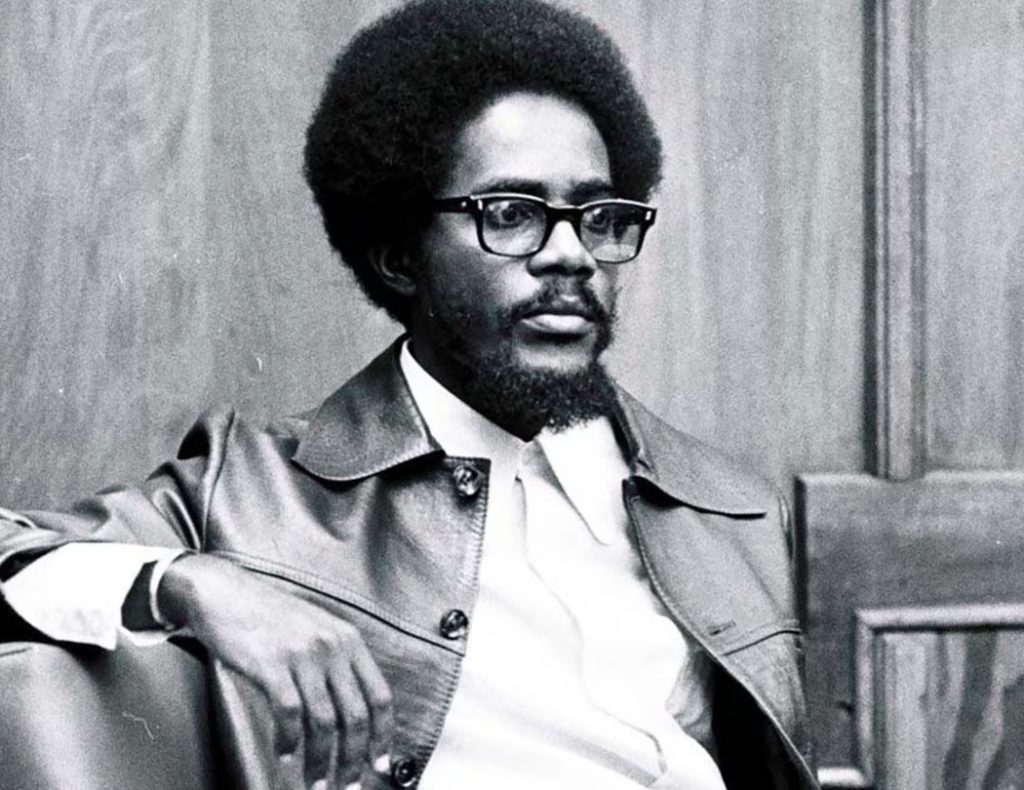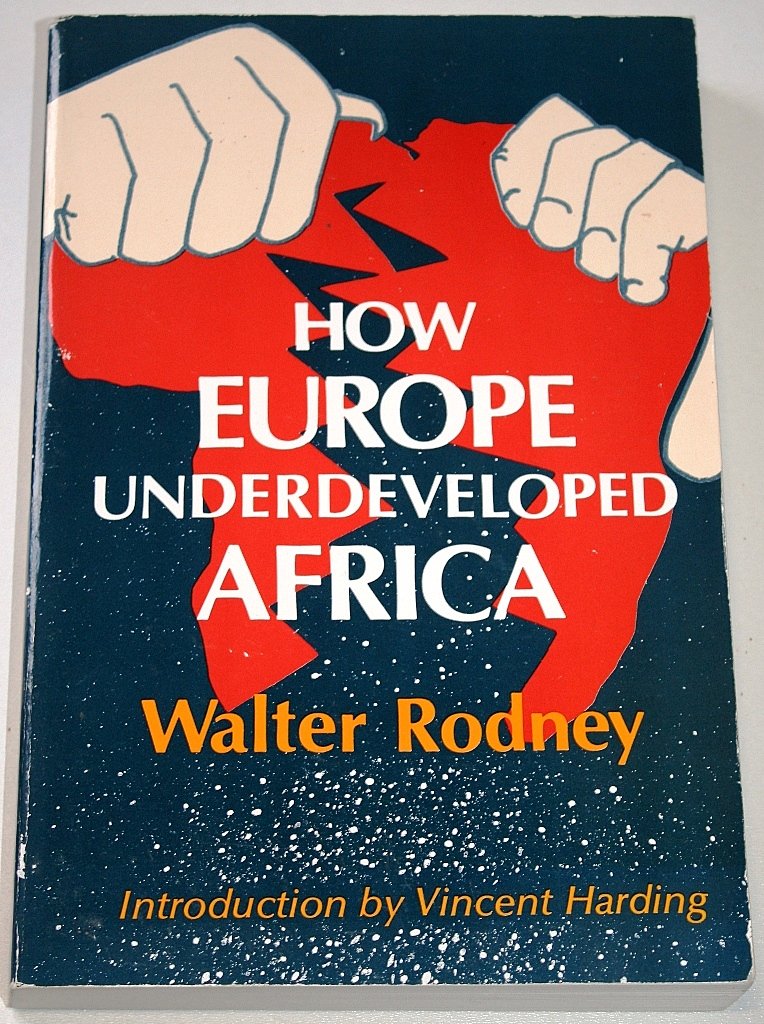Born on March 23, 1942 and assassinated on June 13, 1980 in Georgetown, he was a black activist, historian and Guyanese politician.
A life of anti-colonialist and pan-Africanist commitment
This Guyanese historian had a singular destiny. Author of works devoted to the African continent, slavery, and colonization, he dreamed of a class solidarity for his country that would transcend ethnic divisions. the colonial powers, formed the base of his combative action.
In the checkered streets of downtown Georgetown, the capital of Guyana, a modest memorial honors historian and political activist Walter Rodney (1942–1980). On the central reservation of a busy avenue, palm trees are encircled with green, yellow, and red bands, the national colors of this small English-speaking South American country. A wrought-iron arch bears the initials WAR, for Walter Anthony Rodney.
The titles of eight of his books have been engraved on the concrete pillars supporting the metal structure. It is as if his works, from the history of slavery to that of the Guyanese working class, including the exploitation of the African continent's resources by colonial powers, were all part of the story.
In 2019, his name was removed from the national archives
“How Europe underdeveloped Africa”, published by Bogle-l'Ouverture Publications Ltd
How Europe underdeveloped Africa in 1972, to widespread acclaim. Many of the issues Rodney raised and addressed in his book are still relevant today. The inequality gap between Africa and the West has widened, while poverty in Africa is worse today than it was fifty years ago. Time has not diminished the ideas put forward in the book or the power of the argument.
The themes developed
The concepts of development and underdevelopment.
Development is hardly just economic.
Factors responsible for Africa's underdevelopment.
Rodney did not absolve Africans of their responsibility for the development of their continent. He particularly accuses the African bourgeoisie of complicity in Africa's socio-economic malaise, a fact that has intensified through corruption. Rodney also notes that internal divisions between different African groups have facilitated foreign exploitation.
Rodney points out that underdevelopment is not a natural or inevitable state, but rather the result of a specific economic and political system that favors the interests of dominant powers and oppresses weaker peoples and nations. Overcoming underdevelopment requires the implementation of just and equitable economic and social policies that promote sustainable development and social justice.
Rodney believes that Africa had potential for development before the arrival of Europeans, but that the negative impact of the slave trade and other forms of exploitation undermined this potential. However, he emphasizes that Africa still has the capacity to develop and realize its potential, provided it breaks the chains of exploitation and oppression.


